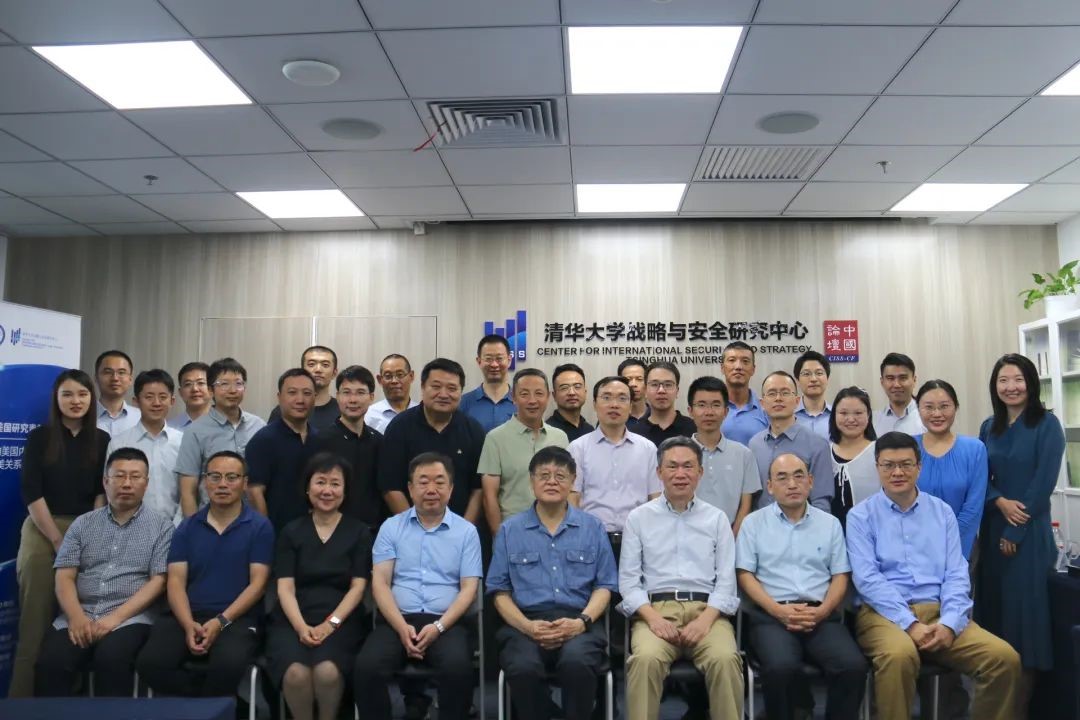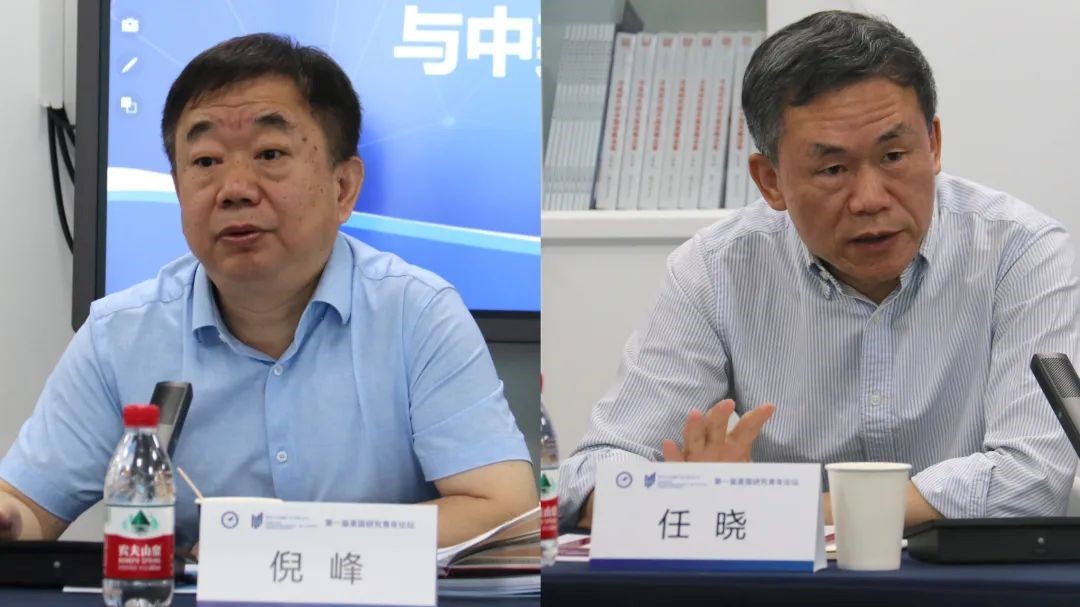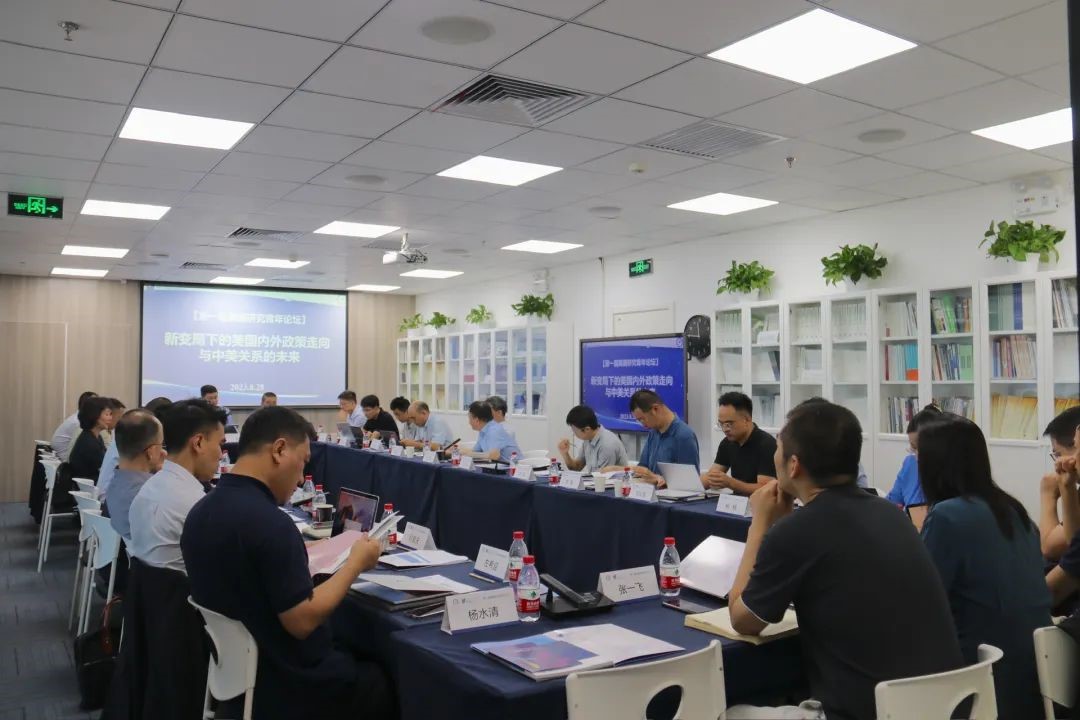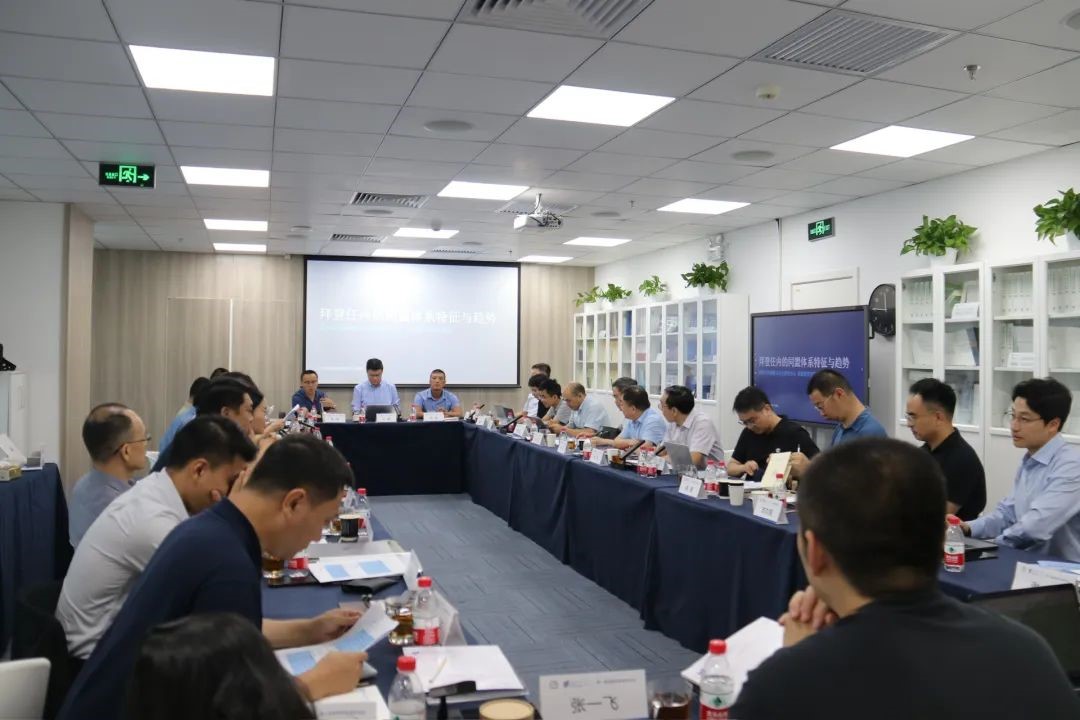On August 28, the Center for International Security and Strategy of Tsinghua University (CISS) and the Youth Branch of the Chinese Association for American Studies (CAAS) jointly organized the first Youth Forum on American Studies. Under the theme of “The Trends of U.S. Internal and External Policies and the Future of China-U.S. Relations under the New Changing Circumstances,” the Forum invited more than 30 young and middle-aged experts and scholars to discuss the topics on “U.S. Politics and Society, Economy and Science, Technology, Diplomacy, Military Security, and China-U.S. Relations.”

The keynote speech session was chaired by CISS Director Da Wei, and delivered by Ni Feng, President of the CAAS and Director of the Institute of American Studies of the Chinese Academy of Social Sciences, and Ren Xiao, Professor of Fudan University. Ni Feng examined the main features of the U.S. strategy towards China from four perspectives: economy, geostrategic competition, domestic mobilization, and ideology. Ren Xiao indicated that the current study of the United States should trace its roots and read the original texts carefully, which will help further improve American studies.

Forum guests centered their discussions on U.S. politics and society in the first session of the morning. Participating experts expressed their views on the judicial litigation faced by Donald Trump, the two-party political ecology, U.S. political characteristics, and its political and social challenges, etc., and believed that a huge storm was brewing under the surface of the U.S. internal affairs. Therefore, clarifying the vein of the U.S. internal affairs is of great significance in understanding China-U.S. relations. The experts further pointed out that it was important to strengthen basic research while we pay attention to hot spots in American studies.
In the second session of the morning, the participating experts discussed the U.S. economy and science and technology. On the whole, science and technology issues have become the most significant area of the qualitative change in U.S. policy toward China, which has transformed the posture of both sides from win-win cooperation to a zero-sum game gradually. The experts believed that China should maintain a strong awareness of unexpected development, and continuously optimize the layout of industry and supply chains and technology development strategies.
In his lunchtime speech, Wang Jisi, Honorary President of the CAAS and President of the Institute of International and Strategic Studies at Peking University, first compared today’s China-U.S. relations with the early U.S.-Soviet Cold War, and argued that today’s China-U.S. game, featured by more intensity, complexity, and longer duration, had a more profound impact on the development of both sides.

The third session in the afternoon focused on U.S. diplomacy. Participating experts discussed the global strategy constructed by the United States to serve itself, its strategic alliance with China, and its dynamic development. They unanimously agreed that more in-depth research was needed to strive for a favorable game situation for China in the current international situation.

In the fourth and fifth sessions, participating experts discussed U.S. military security and China-U.S. relations. With regard to military security, the experts believed that this topic deserved great attention from both sides. If it gets out of control, both sides will fall into a more negative mode of great power interaction. Regarding China-U.S. relations, they examined the U.S. policy on Taiwan, the strategic logic of China and the U.S., and the U.S. competition in science and technology against China. They believed that in the case of selective decoupling of the U.S. towards China, the scope of the “small yard, high fence” would gradually expand. And at the level of people-to-people exchanges between China and the U.S., we must be more proactive in striving for resources, which, to a certain extent, can also play a role in stabilizing China-U.S. relations.
In the end, Xiao Qian, Deputy Director of CISS, summarized the discussions of the Forum, thanked all the experts and scholars for coming, and hoped that the Youth Forum on American Studies could continue to receive guidance and support from experts and scholars in the field.
